The beauty of the Mediterranean diet is that it is not a diet, but the principles of a balanced diet.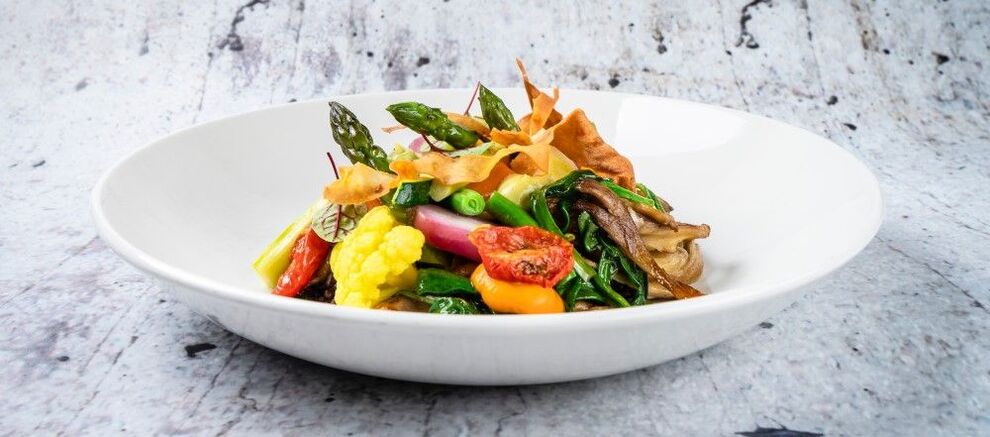 As a rule, almost any diet has serious restrictions, it should be done under the supervision of a doctor and has contraindications. The Mediterranean diet is suitable for everyone, including children, pregnant women and the elderly. Even if you have an allergy or intolerance to certain foods, they are easily replaced by others. You will not be hungry and stressed. On the contrary, you will be extremely satisfied with your food. It is not without reason that the inhabitants of these regions have excellent health and cheerful personalities.
As a rule, almost any diet has serious restrictions, it should be done under the supervision of a doctor and has contraindications. The Mediterranean diet is suitable for everyone, including children, pregnant women and the elderly. Even if you have an allergy or intolerance to certain foods, they are easily replaced by others. You will not be hungry and stressed. On the contrary, you will be extremely satisfied with your food. It is not without reason that the inhabitants of these regions have excellent health and cheerful personalities.
The Mediterranean diet is a way of life that helps you stay in shape, rarely get sick, and prolong your youth. Thinking to adjust the diet towards proper nutrition, studying the principles of the Mediterranean diet.
In 2010, the Mediterranean diet was officially recognized by UNESCO as an intangible heritage of the Mediterranean countries: Greece, France, Italy, Morocco, Spain, Croatia, Cyprus, Portugal.
If we go back in history, we can see that in the culinary culture of ancient Greece, and then ancient Rome, there were all the main ingredients of this diet. Eat plenty of vegetables and fruits, seafood, olive oil, legumes, and limit meat and sweets. That is, plant foods rich in vitamins, minerals and fiber, high-quality protein, healthy fats, and slow carbohydrates. They activate metabolism, improve digestion, strengthen all functional systems of the body, thanks to antioxidants, they slow down the aging process, increase the production of the hormone of pleasure, promotebeauty and harmony. But the most important thing is that they always allow themselves to feel comfortable But being vegetarian in the Mediterranean countries is not very popular, when in fact there is no red meat dish, nor too heavy dishes.
Scientists from the Harvard School of Public Health studied the health effects of the Mediterranean diet and concluded that "Mediterranean diet traditions, regular exercise, and smoking cessation may preventprevent more than 80% of coronary heart disease, 70% of strokes and 90% of type 2 diabetes".
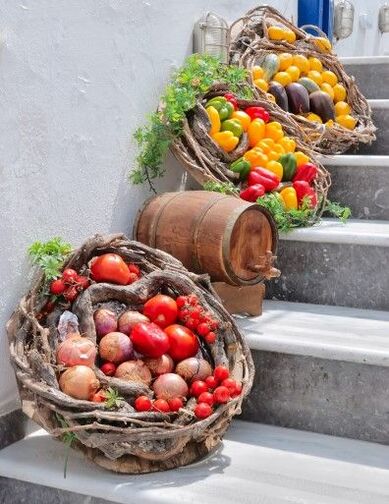
The term itself appeared in the 50s of the twentieth century, it was introduced by a doctor, professor at the University of Minnesota Ansel Keys. In 1945, he arrived in Italy with a group of American soldiers. Observing the locals, Keys noticed that they were less prone to cardiovascular problems and had a longer life expectancy than in his hometown. He suggested, and then demonstrated, that this was the result of a lifestyle and nutritional system. A little earlier, in the late 1930s, Italian nutritionist Lorenzo Piroddi first linked nutrition and susceptibility to diseases such as diabetes, obesity, and bulimia, which is why whywhy he is called the "father" of the Mediterranean diet. And Ansel Keys stayed on the coast in Italy and lived to be 100 years old.
List the advantages of the Mediterranean diet.
Strengthens the cardiovascular system. Omega fatty acids from olive oil, nuts, some vegetables and fruits keep blood vessels clean and elastic.
Prevention or treatment of diabetes, as the diet consists mainly of foods with a low glycemic index and almost no use of sugar, means fast carbohydrates.
High-fiber foods are included in each meal, they ensure a good metabolism, help with smooth weight loss and maintain a positive dynamic over time, improve the state of the nervous system, improveImproves mood and stimulates brain activity.
Many foods in the Mediterranean diet promote the synthesis of endorphins, dopamine, serotonin, and tryptophan, known as the happy hormone. This reduces the risk of developing Parkinson's disease, Alzheimer's and dementia in old age.
Chatting with friends, long Sunday dinners with family, picnics in nature, cooking together are all part of the culture of the Mediterranean countries, very useful to include in everyday life toReduce stress and anxiety levels and reinforce positivity.
Prolong youth and beauty thanks to flavonoids and antioxidants. They reduce damage from oxidation, which aggravates internal and external conditions. Selenium, manganese, zinc, vitamins A and E help firm skin, shiny and thick hair.
There are practically no downsides to the Mediterranean diet.
It helps you transition to proper nutrition and improves your health. It is not seasonal, has no time limits and includes a varied menu. Her only drawback is her inability to lose weight quickly.
In practice, however, it turns into a plus. Excessive weight loss often takes a toll on the body: from a dramatic change in regimen, to a tangible loss of our usual daily calories, we experience stress. The body responds with poor health, decline in strength, immunity and mood, exacerbation of chronic diseases or new diseases emerging if the diet is not controlled.
Yes, for a while weight loss is rapid, but the brain goes into protective mode against possible hunger, and even from low-calorie food, the body can store fat. Reserve. So, most of the time after finishing the diet, the weight comes back, and sometimes even gains.
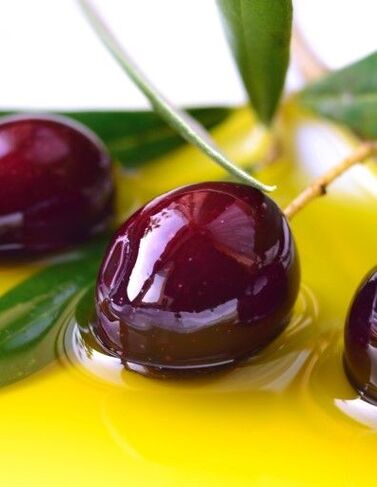
This will not happen with the Mediterranean diet. You won't see rapid changes, but be patient. You will notice the first results after a few months. You should eat five times a day in small portions - so you won't feel hungry and your body will get all the nutrients it needs. Gradually, a reasonable diet will restart the body's functional systems, improve metabolism, and return to normal weight. Add physical activity, at least a long walk, and the effect will be noticeable.
The list of approved products is extensive. Nutritionists have identified them in a pyramid based on (60%) sources of complex carbohydrates, high-quality fats, and vegetables. The former includes whole grains, durum pasta, whole-wheat bread, nuts and seeds, and legumes. Products of this group should be included in the menu every day.
Varied vegetables are presented. Look especially for leafy vegetables like spinach and kale, and low-starch vegetables like eggplant and zucchini, cauliflower and broccoli, tomatoes, peppers and dill. WHO recommends daily vegetable intake - 6 servings per day - based on the exact amount of vegetables in the Mediterranean diet.
In the past, when there were no modern fruit and vegetable preservation technologies, cooking was based on the principle of seasonality. Alas, in our terms, seasonal vegetables are a short-lived pleasure. There is a solution: use frozen vegetables. Unlike imported varieties, shock freezing, which is done within a few hours of harvest at the peak of ripeness, preserves almost all the vitamins in them. In winter and spring, the freshness of vegetables is a rather arbitrary concept. Manufacturers take into account the long journey and the process of storage, they treat them with chemicals.
Chickpeas, lentils and beans contain complete plant protein, a rich nutrient complex and fiber. They saturate well and create a feeling of fullness for a long time. Combined with legumes, a variety of well-balanced meals can be prepared. Concentrated soups will keep you warm in cold weather, and salads are a great option for dinner. Try eating vegetables and legumes for dinner two to three times a week.
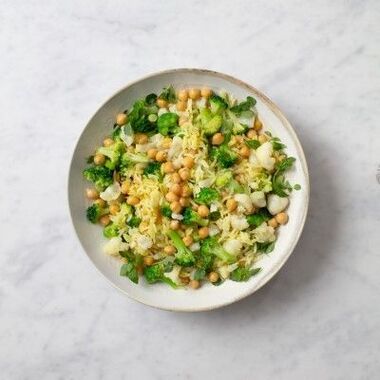
Jasmine rice with chickpeas, broccoli, cauliflower and truffle oil dầu
Ingredient:
- Chickpeas Bonduelle 1 can (310 g).
- Broccoli Bonduelle mini 1 pack (300 g).
- Cauliflower mini Bonduelle 1 pack (300 g).
- Plain rice 200g.
- Basil 40g.
- Curry 1 teaspoon
- Olive oil 20 ml.
- Salt to taste.
Cooking recipe:
- Cook rice according to instructions. Add curry, stir well.
- Heat olive oil in a pan and lightly sauté the cabbage and broccoli.
- Add cabbage, green beans and rice, stir well. Salt if necessary. Garnish with basil leaves before serving.
Pasta isn't bad if it's made from flour: it's low in calories, has a rich vitamin and mineral content, and it's easy to digest. In addition, pasta, like cereals, is one of the main sources of B vitamins. Pasta is made from unrefined wheat flour to provide energy for the body, for example, should be eaten before physical activity. matter.
Of course, all the benefits can be negated if you serve it with a rich sauce or serve it as an accompaniment to meat - such a serving has nothing to do with Mediterranean traditions. . Light sauces based on olive oil, vegetables, fish and seafood will be suitable options for pasta dishes.
Spaghetti with broccoli and pine nuts
Ingredient:
- Pack of broccoli (300 g).
- Spaghetti 250 g.
- Pine nuts 40 g.
- Olive oil 20 ml.
- Ricotta 100g.
- Salt to taste.
Recipe:
- Cook pasta until cooked.
- Boil broccoli according to instructions.
- Break 100 g of broccoli with a blender. Mix with ricotta and olive oil.
- Add the spaghetti sauce and the rest of the broccoli, season with salt and cook over low heat for 2 minutes.
- Fry the pine nuts in a dry pan and sprinkle them over the pasta before serving.
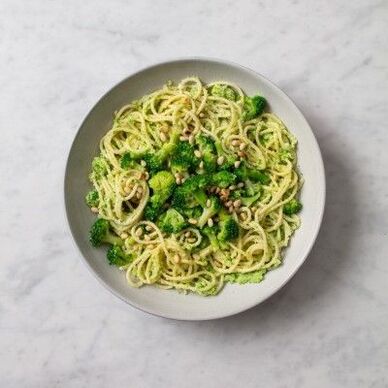
Olive oil, the alpha and omega of the Mediterranean diet, is the culinary icon of this region. Olives began to be consumed here thousands of years ago. Left untreated, they taste very bitter, so they have been salted or pressed for oil.
The reason for this is that oleuropein, a phenolic compound, together with omega fatty acids and vitamin E, determines the benefits of olives. Phenol is a potent antioxidant that has antibacterial, anti-inflammatory, and free radical scavenging properties. Scientists have found that 2-4 tablespoons of olive oil per day significantly reduces the risk of coronary heart disease.
Having encountered mention of vitamin F, do not be surprised. Many people don't know that essential fatty acids have a common name - vitamin F. These are archidonic, linoleic and linolenic acids. The human body does not make them and only receives them with food.
But keep in mind that not all olive oil is created equal. It is best to add vergin, a cold pressed oil produced by mechanical means. Its acidity, that is, organic acid content, does not exceed 0. 8%. During the manufacturing process, this oil retains its full range of vitamins and antioxidants and should be stored in a dark glass bottle at room temperature. It is not heat treated.
Add olives anywhere: in salads, soups, main courses, pies, toast or omelettes. Olives have a salty taste, with them dishes do not need to add salt, which will reduce the amount of salt consumed. Find inspiration in our selection of olive recipes.
The second step of the pyramid is the correct source of protein, which makes up 30% of the Mediterranean diet. Part of the body gets its protein from plant foods, most fish and seafood, natural yogurt, fresh cheeses, low-fat cheeses (cheese made from goat and sheep's milk are particularly popular), meatswhite (chicken, turkey, rabbit) and egg. . Foods in this group should be eaten three to four times a week.
Fish should not only be eaten on Thursdays, as in the book Healthy and Delicious Food, but several times a week. If you choose between river and sea, choose the latter, and the fatty one. With it you will get not only protein, but also Omega 3 acids, iodine rare in food, and a wonderful complex of vitamins: A, E, D, C, B. Therefore, they immediately begin to be digested, which makes fish an ideal dietary product.
Talking about fish often leads to complaints that it is expensive and that it is almost impossible to buy good fish. Let's clarify these interesting questions.
Indeed, very few people manage to buy fresh caught fish. In this case, as with vegetables, do not be afraid of freezing. Observe the defrosting rules: in the bottom compartment of the refrigerator, it will take 10-12 hours and retain all the nutrients. Again, for vegetables, when purchasing, be aware that there are no ice crystals in the package. They are evidence that the fish is improperly stored: no temperature regime is observed. Do not let the fish freeze on its own.
Fish in all countries is an expensive product, but here too there is an escape route. If you can't afford salmon or tuna fillets, buy the more affordable varieties: cod, mackerel, pink salmon, herring, halibut, halibut, king mackerel, sardines. In principle, in the Mediterranean countries, most families cook from these fish, dishes with them are very tasty and varied. Many people skip canned tuna, but in vain: it is much more expensive than fresh fish and is also healthy if it is not made with oil but with its own juice. Cooking salads with him is a pleasure: no need to bother with cutting.
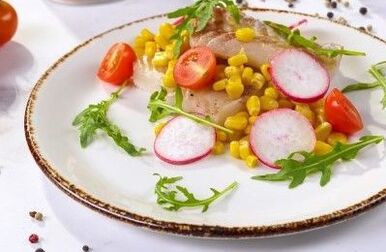
Cod fillet with corn
Ingredient:
- Bonduelle baby corn 1/3 can (140 g).
- Cod fillet 200 g.
- Radish 2 pcs.
- Cherry tomatoes 5 pcs.
- Lemon peel 2 pinch.
- Lemon juice 1 teaspoon
- Any green to taste.
- Arugula to serve.
- Salt and pepper to taste.
Recipe:
- Dry the cod fillet, remove the bones with tweezers and place the fish in a baking dish. Then lightly drizzle with lemon juice, rub with a mixture of salt, pepper and lemon zest Bake in the oven at 180 degrees C for 15-25 minutes depending on the size of the fillet.
- Cut the cherries in half, cut the radish into slices. Chop the herbs.
- Place the finished cod fillet on a serving plate. Place garnish with corn, tomatoes, radishes, and herbs nearby. Garnish with arugula.
The same applies to seafood: we won't be aiming for lobster, oysters and lobster, but let's take a closer look at mussels and shrimp. Iodine, selenium, zinc, iron, copper, magnesium - this is not an exhaustive list of the minerals they contain, plus they are low in calories. Shrimp are rich in vitamin B12 - it is involved in the production of hemoglobin, and in mussels - vitamin E, which protects cell membranes from destruction.
The final 10% consists of red meat, which is recommended to be eaten no more than once a week, animal fats and simple carbohydrates. Try to cook meat in a gentle way - stew or grill, and fry without oil on the grill. Without dessert, life lacks sweet pleasure, but still choose healthy desserts. Using a minimum of sugar, the natural sweetness of fruits, honey and vegetables is enough. For example, the baby corn itself is sweet, the desserts with it are delicious and original, and you can also eat them straight from the can.

Baby corn fruit salad
Ingredient:
- Bonduelle baby corn 1 can (340 g).
- Blueberries 70g.
- Strawberry 70g.
- Raspberries 70 g.
- Cam 1 pc.
- Walnuts 80g.
- Natural yogurt 400 ml.
Recipe:
- Peel the orange. Cut oranges into slices.
- Drain in a can of corn. Mix corn and berries.
- Finely chop walnuts and add to yogurt, mix well.
- Put fruit salad with baby corn in a small bowl, add yogurt with walnuts. Serve with a slice of orange.
Finally, a few words about spices.
The scent of hot sun and Mediterranean garden is contained in rosemary, sage, thyme, marjoram. Parsley and garlic are the simplest and most affordable spices used by chefs of this region for centuries. A mixture of allspice, Provencal or Italian herbs will give dishes an interesting meaning and nuance. In addition, they will allow you to use less salt - the brightness of the spices is enough to get the full flavor.

There are practically no foods banned in the Mediterranean diet and their list coincides with the list given by all nutritionists. This is fast food and any "junk" food, industrial semi-finished products, sauces, sweets with preservatives and flavor enhancers.
Drink plenty of water, don't skip a glass of dry red wine (but no more! ) and be healthy!














































































